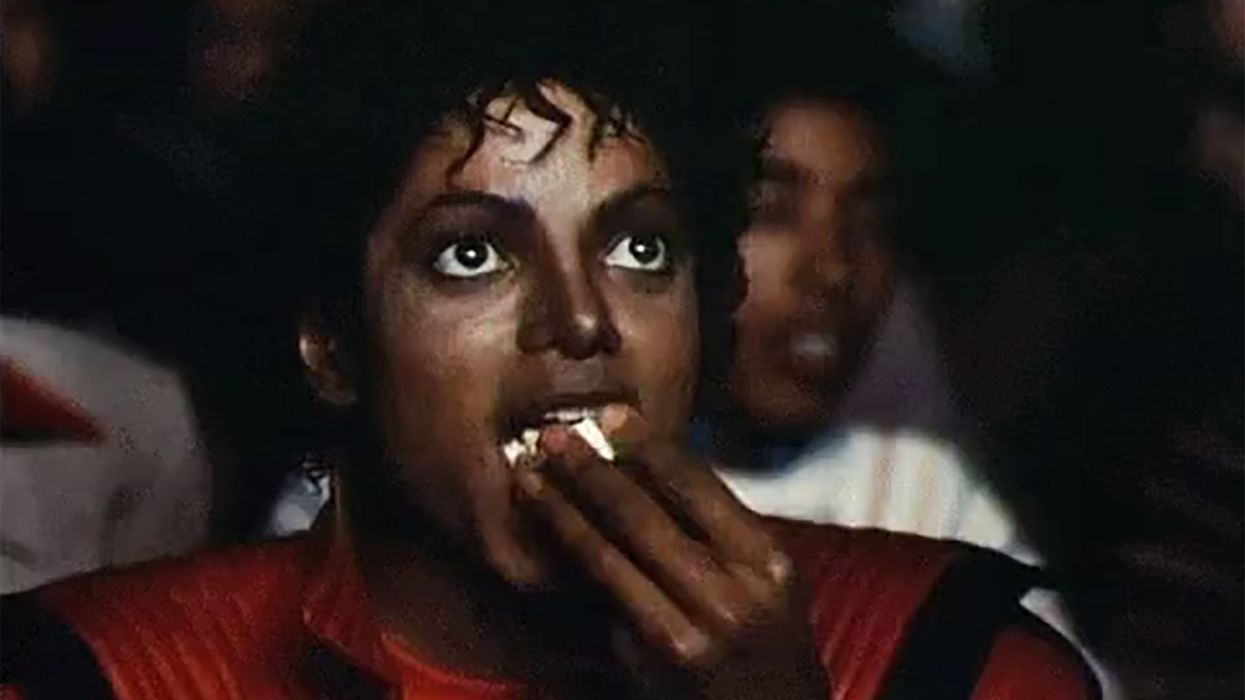The Michael Jackson Popcorn GIF and the Controversy of ‘Leaving Neverland’
Exploring the one GIF that perfectly sums up this entire dumpster fire of a debate.

If you’ve ever interneted, you’ve seen the GIF in question. The infamous “Popcorn” GIF as its known in some circles has long been used to express impending excitement for an upcoming online debate or argument. Often it precedes some sort of trolling or leading comment that will undoubtedly result in dozens of commenters jumping into a thread to weigh in heavily.
However, with the recent release of the new documentary Leaving Neverland (watch the trailer here) which dives head first into the much-known and highly reported through the years controversy regarding Michael Jackson’s alleged sexual abuse of young boys at his famed Neverland Ranch, the meme has taken on a new life and meaning.
The Michael Jackson Popcorn GIF

Since Dan Reed’s Leaving Neverland aired last weekend (and despite the Jackson camp trying to deflect the story by releasing content of their own), backlash against Jackson and his legacy have been harsh and swift with radios pulling his music and even the Simpsons pulling their MJ-cameo episode ‘Stark Raving Dad’.
Yet, when any news of Michael Jackson seems to pop up, it’s undoubtedly followed with fierce debate between those disgusted with the allegations and those disgusted that allegations be brought up at all. And what follows… a smirking Michael Jackson gleefully popping popcorn into his mouth watching the two sides go at it.
According to Know Your Meme, the GIF in question first popped up online in 2007 on the website YTMND set up against the song 1983 R&B “Popcorn Love” by New Edition. However the clip in question clearly comes from the John Landis directed music video for “Thriller” - widely regarded as one of the most popular and acclaimed music videos of all time.
By the early 2010s the GIF became synonymous with the “Facebook argument about to happen” and has spawned its own line of “eating popcorn” memes featuring the likes of Stephen Colbert, George Costanza and Bill Hader.
And while still funny perhaps, this recent use has taken a whole new turn for the meme as its appropriation against or in defense of people’s opinions about Michael Jackson’s legacy has given it its own unique life.
But, as with the rest of Michael Jackson’s music, career and legacy, we’ll collectively have to come to terms with its use and our own ability to separate art from the artist once again.











